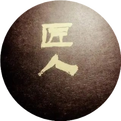Traditional Chinese Medicine class=””> categorizes the important internal organs of the human body into two main categories: the “Zang” (五脏) and “Fu” (六腑). The theory regarding these organs is known as the “Zangxiang” (藏象) theory. “Zang” refers to the internal organs that are hidden within, while “Xiang” refers to the manifestations or images. This means that although the internal organs exist within the body, their physiological and pathological changes are reflected externally. Therefore, the study of the Zang and Fu in TCM is a theory that observes external manifestations to understand the activities and interrelations of the internal organs. The five Zang and six Fu work together to maintain the health of the body. So, what exactly do the five Zang and six Fu refer to?What connections exist between the five Zang and six Fu? How can we maintain the health of these organs?
Five Zang organs are: Heart (心), Liver (肝), Spleen (脾), Lung (肺), Kidney (肾)
Six Fu organs are: Gallbladder (胆), Stomach (胃), Small Intestine (小肠), Large Intestine (大肠), Bladder (膀胱), San Jiao (三焦)
“Zang” refers to solid organs with a physical structure, which include the Heart, Liver, Spleen, Lung, and Kidney, collectively known as the five Zang. The Pericardium (心包络) is also considered a Zang, but it is usually grouped with the Heart, thus the term “five Zang” encompasses the Pericardium. The term “Zang” means to store. The Heart stores the Shen (神), the Lung stores the Po (魄), the Liver stores the Hun (魂), the Spleen stores the Yi (意) and Zhi (智), and the Kidney stores the Jing (精) and Zhi (志), hence they are referred to as the five Zang.The Essence of TCM: Each Zang and Fu has its own role
“Fu” refers to hollow organs, which include the Gallbladder, Stomach, Large Intestine, Small Intestine, Bladder, and San Jiao. These organs receive the turbid Qi from the five Zang and are known as the “houses of transformation,” thus they are referred to as the six Fu.

【Five Zang】
Heart Function
The Heart is the ruler of life activities in the human body.
1. Governs consciousness – including thinking, memory, and judgment. The Heart governs the Shen, so when the Heart is ill, it can lead to forgetfulness,insomnia, and mental disturbances. As one ages, the Heart is more prone to illness, thus it requires careful attention.
2. Governs blood vessels – the Heart can control the blood vessels, thus it is related to blood deficiency and blood stasis, similar to the Liver.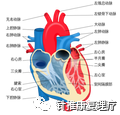
Liver Function
1. Stores blood – Liver diseases can lead to blood deficiency and blood stasis, and conversely, blood deficiency and stasis can trigger liver diseases.
2. Crown of the five Zang – a strong Liver helps prevent diseases. Conversely, a weak Liver can lead to illness, body weakness, susceptibility to colds, throat inflammation, lymphadenopathy, etc., all of which are caused by abnormal liver function.
3. Dislikes constraint – the Liver prefers to be free and dislikes constraint, so when under mental stress, it can become angry and anxious, leading to abnormal liver function. Menopausal disorders and occupational diseases are examples of this type of liver disease.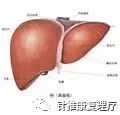
Spleen Function
1. Governs food absorption – the Spleen absorbs nutrients from food and breaks them down into easily absorbable substances, distributing them to all organs. Abnormal Spleen function often leads to weakened digestion, malnutrition, and weight loss, which is very important.
2. Governs muscles, hands, and feet – being overweight, underweight, or having cold hands and feet, and lack of activity are symptoms of abnormal Spleen function.
3. Governs blood – weakened Spleen function can lead to blood deficiency and increased bleeding tendencies.
.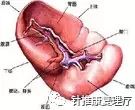
Lung Function
1. Governs respiration – air enters the body through the Lung’s respiratory function, supplying the necessary oxygen. Lung abnormalities can lead to asthma,coughing, and other respiratory diseases.
2. Governs the circulation of body fluids – the circulation of body fluids is also under the Lung’s control. If the Lung is diseased, it can lead to pulmonary edema and progressively dry skin.
3. Governs the nose – the occurrence of sinusitis and nasal pus indicates that the Lung is already affected.disease has occurred.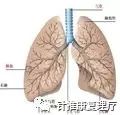
Kidney Function
1. Stores essence – the essence has three functions: first, growth and development; second, absorption of nutrients from food, becoming the source of blood and Qi; third, governing reproductive functions. The Kidney has the function of storing essence, hence it is often referred to as the measure of human vitality, and the appearance of aging is a sign of Kidney deficiency.
2. Governs body fluids – all body fluids are under the Kidney’s control. Symptoms such as edema, stagnation, diabetes insipidus, and frequent urination are caused by Kidney deficiency.
3. Governs bones, ears, and hair – Kidney deficiency makes one prone to aging, leading to various joint and bone diseases, deformities, hearing loss, and hair loss.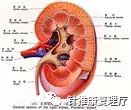
【Six Fu】
Gallbladder – determines when organs such as the stomach and intestines perform digestive work and when to stop. A clear example is sleep, which requires all organs to enter a resting state, needing considerable “determination”; thus, those with Gallbladder deficiency often suffer from insomnia.
Stomach – digests food into easily absorbable nutrients. Symptoms of Stomach disease include loss of appetite, indigestion, nausea, and vomiting.
Small Intestine – when absorbing nutrients from food, it divides them into three types: water, Qi, and blood, then distributes them to the organs that need them. Indigestion, diarrhea, and constipation are diseases related to the Small Intestine.
Large Intestine – bears the waste after absorption by other organs and expels it from the body. Constipation and diarrhea are diseases related to the Large Intestine. Inflammation of the Large Intestine can cause redness and swelling of the anus, even leading to hemorrhoids and rectal bleeding.
Bladder – collects body fluids and sends them to the necessary parts, then expels excess fluids from the body. Symptoms of Bladder inflammation include edema and frequent urination.
San Jiao – promotes the circulation of Qi, blood, and body fluids, allowing each organ to fully perform its functions; thus, diseases of the San Jiao can affect the health of all organs.
Key Points for Nourishing the Five Organs
The life of a person is centered around the five Zang, coordinating the functions of the Zang and Fu. This is an important principle of health preservation.
Minimize desires – the way to nourish the Heart
Traditional Chinese Medicine believes that the “Heart” is the “ruler of the organs.” The “Su Wen: Ling Lan Mi Dian Lun” states, “The Heart is the ruler of the organs, and the Shen emerges from it,” indicating the special functions of the “Shen” in thinking, regulating behavior, and commanding all physiological activities, all of which are governed by the “Heart.” “The Heart is the great master of the five Zang and six Fu.” “When the master is clear, the subordinates are safe; when the master is unclear, the twelve organs are in danger, causing the pathways to be blocked and not smooth, leading to great harm.” Humans have “seven emotions and six desires”; excessive desires and lofty ambitions can cause the spirit to become overly agitated, the Shen not to be contained, leading to chaos and instability, which can harm the Zang and Fu, depleting Qi and blood, resulting in diseases and even hastening aging and shortening lifespan. Therefore, it is advised that to nourish the Heart, one should “be tranquil and void, allowing true Qi to follow, keeping the spirit within, and where does illness come from?”

Avoid anger – the primary duty of nourishing the Liver
It is said that great anger harms the Liver, causing blood not to nourish the tendons and Qi to become agitated. Qi agitation can lead to vomiting blood, diarrhea, and dark vision, causing faintness. The “Ming Yi Xu Lun” states that people do not live long due to not cherishing themselves, being consumed by anger, accumulating toxins that harm the spirit, internally injuring the marrow, and externally depleting the muscles, leading to a decline in righteous Qi and an increase in evil Qi, which severely damages the body and mind.

Diet control – a good method for nourishing the Spleen and Stomach
From a modern health perspective, You’s principle of “diet control” for nourishing the Spleen and Stomach aligns with scientific dietary principles. Experts have studied that long-term overeating has four major harms:
1. Nutritional excess leads to obesity, which can trigger many serious diseases such as hyperlipidemia, hypertension, arteriosclerosis, coronary heart disease, stroke,diabetes, fatty liver, gallstones, and gout. Therefore, “being fat but not living long is the source of all diseases.”
2. Causes blood to become acidic; due to long-term overeating, metabolism increases, producing excessive acidic metabolic products that acidify the blood, which can induce many diseases. Thus, medical experts say, “All diseases begin with acid poisoning.”
3. Produces excessive free radicals. Long-term overeating, especially consuming excessive high-fat, high-cholesterol, and high-sugar foods, can lead to the body producing excessive free radicals. Research has confirmed that free radicals are the “culprits” of aging; they not only promote pathological aging but also accelerate physiological aging.
4. Triggers senile dementia. Research has found that a substance called “fibroblast growth factor” can promote cerebral arteriosclerosis, leading to senile dementia. Long-term overeating can cause this “fibroblast growth factor” to accumulate in the brain, leading to cerebral arteriosclerosis and senile dementia. The “Bencao Gangmu” states, “Overeating without moderation can kill in an instant.” The “Tui An Sui Bi” states, “The more one eats, the more the heart becomes blocked, and the more one ages.” American anti-aging expert Hill sternly points out, “Long-term overeating is digging a grave with your teeth; if you are tempted by delicious food and pursue eating and drinking, its harm will enter every cell of your body and ultimately destroy you.”

Nourishing Qi – the essence of nourishing the Lung
The Lung governs the Qi of the entire body, meaning that all Qi in the body belongs to the Lung and is under its command. All types of Qi, including Yuan Qi (元气), Zong Qi (宗气), Wei Qi (卫气), and Ying Qi (营气), must be distributed through the Lung’s respiration for the functions of the internal organs and the Qi of the meridians and Ying-Wei to be regulated and realized. Thus, the Lung is the master of Qi. As stated in the “Su Wen: Five Zang Generation,” “All Qi belongs to the Lung.”

Preserve essence – the key to nourishing the Kidney
Traditional Chinese Medicine believes that the Kidney is the foundation of innate essence and the root of life. The balance of Kidney essence determines the entire process of human growth, aging, and death. The saying “aging before old” refers to Kidney deficiency. The famous Ming dynasty physician Zhang Jingyue stated, “The five Zang are the foundation of the human body, and the Kidney is the foundation of the five Zang. Therefore, to achieve longevity, one must nourish the Kidney.”
Through the above introduction, everyone understands the specific meanings of the five Zang and six Fu and the methods for nourishing them. Only through the interaction and mutual support of the five Zang and six Fu can the health of the body be ensured.


 Click below to “Read More” for more information
Click below to “Read More” for more information

